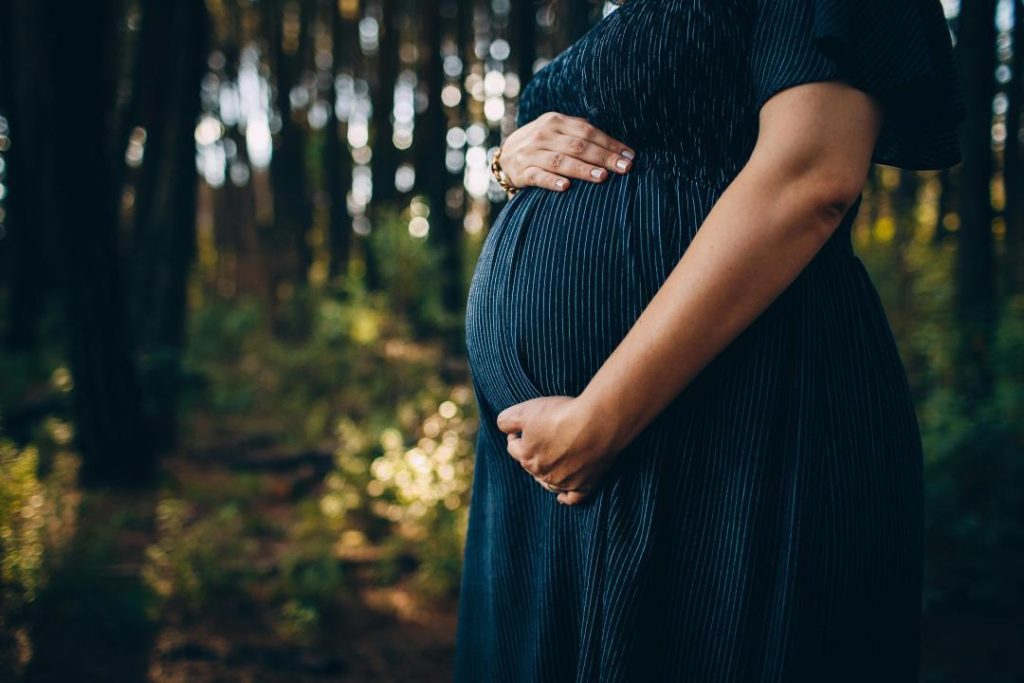
Can Calcium Help Prevent High Blood Pressure in Pregnancy?
Hypertension, or high blood pressure, is a common problem during pregnancy, affecting approximately 2-8% of expectant mothers. While high blood pressure in itself is not necessarily a life-threatening condition, it can lead to serious complications, such as preeclampsia, a condition that can have devastating consequences for both mother and baby. Preeclampsia is a pregnancy complication characterized by high blood pressure and damage to organs such as the kidneys and liver. It is a leading cause of maternal morbidity and mortality, particularly in low-resource settings.
While the exact causes of preeclampsia are still not fully understood, research has identified several risk factors, including a family history of the condition, a history of hypertension, and a lack of calcium in the diet. In fact, a study published in the Journal of the American College of Nutrition found that a daily calcium supplement of 500 mg may reduce the risk of preeclampsia by nearly 50%.
In this blog post, we will explore the connection between calcium and preeclampsia, and discuss the potential benefits of calcium supplementation during pregnancy.
What is Preeclampsia and Why Does it Matter?
Preeclampsia is a pregnancy-related condition characterized by high blood pressure and damage to organs such as the kidneys and liver. It typically develops after the 20th week of gestation and can progress rapidly, causing serious complications for both mother and baby.
Preeclampsia is a leading cause of maternal morbidity and mortality, particularly in low-resource settings. According to the World Health Organization (WHO), preeclampsia is responsible for an estimated 76,000 maternal deaths and 500,000 cases of maternal morbidity worldwide each year.
The consequences of preeclampsia can be severe, including premature birth, low birth weight, and even death. In severe cases, preeclampsia can lead to eclampsia, a life-threatening condition characterized by seizures and coma.
The Link between Calcium and Preeclampsia
While the exact causes of preeclampsia are still not fully understood, research has identified several risk factors, including a family history of the condition, a history of hypertension, and a lack of calcium in the diet.
Calcium is essential for maintaining blood vessel health and blood pressure regulation. A diet rich in calcium can help to reduce blood pressure and promote healthy blood vessel function.
A study published in the Journal of the American College of Nutrition found that a daily calcium supplement of 500 mg may reduce the risk of preeclampsia by nearly 50%. The study, which involved over 2,000 pregnant women, found that those who took a calcium supplement had a significantly lower risk of developing preeclampsia compared to those who did not.
The researchers suggested that calcium supplementation may help to reduce the risk of preeclampsia by promoting healthy blood vessel function and blood pressure regulation. They noted that calcium is essential for maintaining blood vessel health and that a lack of calcium in the diet may contribute to the development of preeclampsia.
Who is Most at Risk for Preeclampsia?
While preeclampsia can affect any pregnant woman, some women are more at risk than others. Women who are at increased risk for preeclampsia include:
- Those with a family history of preeclampsia
- Those with a history of hypertension
- Those who have had preeclampsia in a previous pregnancy
- Those who are carrying twins or multiple fetuses
- Those who are overweight or obese
- Those who have a condition called chronic kidney disease
Women who are at increased risk for preeclampsia may benefit from taking a calcium supplement during pregnancy. A study published in the Journal of the American College of Nutrition found that calcium supplementation may reduce the risk of preeclampsia by nearly 50% in women who are at increased risk for the condition.
How Can Calcium Help Prevent High Blood Pressure in Pregnancy?
Calcium supplementation may help to prevent high blood pressure during pregnancy in several ways. Calcium is essential for maintaining blood vessel health and blood pressure regulation. A diet rich in calcium can help to reduce blood pressure and promote healthy blood vessel function.
Calcium supplementation may also help to reduce the risk of preeclampsia by promoting healthy blood vessel function and blood pressure regulation. The researchers suggested that calcium supplementation may help to reduce the risk of preeclampsia by promoting healthy blood vessel function and blood pressure regulation.
Starting Supplementation Early in Pregnancy
While calcium supplementation may be beneficial for pregnant women, it is essential to start supplementation early in pregnancy. A study published in the Journal of the American College of Nutrition found that calcium supplementation may be most effective when started early in pregnancy.
The researchers suggested that calcium supplementation may be most effective when started early in pregnancy because it allows for optimal absorption and utilization of calcium by the body. They noted that calcium supplementation later in pregnancy may not be as effective because the body may not be able to absorb and utilize the calcium as efficiently.
In conclusion, calcium supplementation may be an effective way to prevent high blood pressure during pregnancy. A daily calcium supplement of 500 mg may reduce the risk of preeclampsia by nearly 50%. Women who are at increased risk for preeclampsia may benefit from taking a calcium supplement during pregnancy. It is essential to start supplementation early in pregnancy to ensure optimal absorption and utilization of calcium by the body.
For more information on preeclampsia and the importance of calcium supplementation during pregnancy, please visit our blog at https://thepfc.club/blogs/news/what-is-preeclampsia-and-why-does-it-matter.
News Source:
https://thepfc.club/blogs/news/what-is-preeclampsia-and-why-does-it-matter






